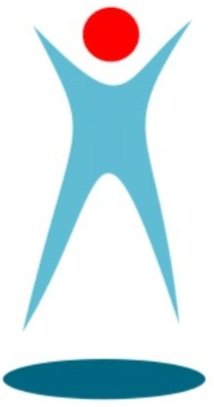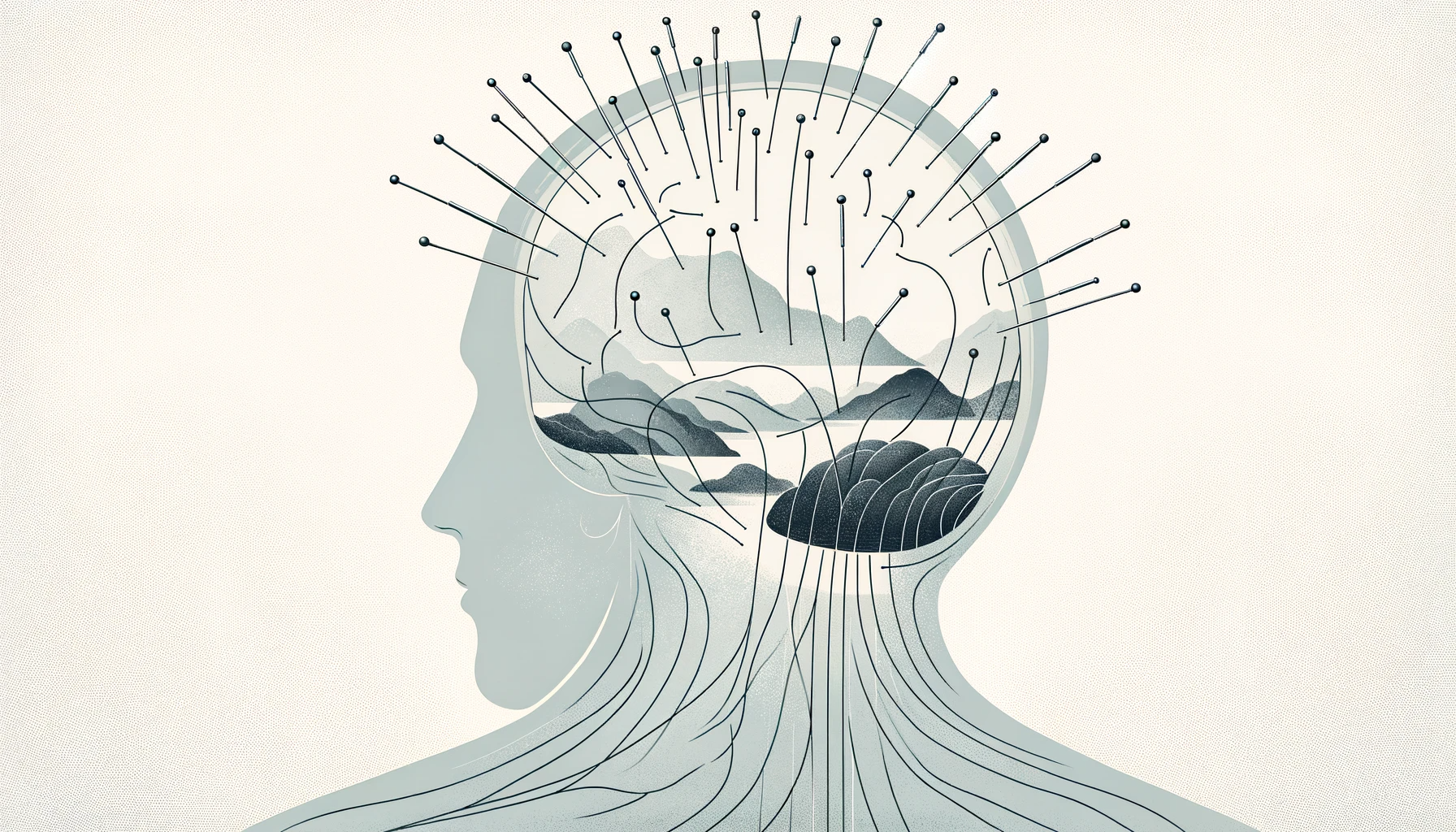The Complete Guide to Zhu's Scalp Acupuncture (2024)
ZSA Blog Takeaways © 2024 by HOPE Neuro-Acupuncure Rehab is licensed under CC BY-SA 4.0
Table of Contents
Introduction
Zhu's Scalp Acupuncture (ZSA) represents a significant leap in the field of traditional Chinese medicine, blending ancient wisdom with modern neuroscientific principles. Developed in the 1970s by Professor Ming Qing Zhu, ZSA stands out for its holistic approach to health and wellness. This method has revolutionized acupuncture by focusing on the scalp, believed to be a powerful gateway to influencing brain activity and bodily functions. It has gained acclaim for its effectiveness in treating a range of conditions, from chronic pain to neurological disorders.
The Philosophy and Science Behind ZSA
The philosophy underpinning ZSA is deeply rooted in the traditional Chinese medicine concept of Qi, or life energy, and its flow through the body. Professor Zhu innovatively combined this ancient belief with contemporary neurology, recognizing that specific areas of the scalp are directly linked to different parts of the brain and, by extension, various body functions. This connection forms the basis for ZSA's effectiveness. By stimulating these areas, ZSA can influence the brain's control of physical and emotional well-being, offering a novel approach to healing.
Technique and Procedure
ZSA's technique is distinctively different from traditional body acupuncture. It involves the insertion of fine, short needles into precise locations on the scalp. These locations, carefully mapped based on neurological principles, correspond to different body systems and functions. The procedure begins with a detailed assessment of the patient's condition, followed by the gentle insertion of needles. The practitioner then carefully stimulates these needles, often in combination with other therapeutic techniques, to activate specific brain areas. This process is not only therapeutic but also minimally invasive, making it suitable for a wide range of patients.
Integration of Daoyin
Daoyin, a traditional Chinese practice of guided exercises and movements, is integral to ZSA. These exercises are tailored to each patient's condition and are designed to enhance the effects of the acupuncture treatment. Daoyin helps in promoting the flow of Qi and blood, improving flexibility, and strengthening the body. It is particularly effective in cases of neurological and musculoskeletal conditions, where it aids in the restoration of movement and function. The synergy between Daoyin and ZSA creates a powerful tool for holistic healing.
Comprehensive Benefits of Zhu's Scalp Acupuncture
Zhu's Scalp Acupuncture is celebrated for its wide array of benefits. It has shown remarkable effectiveness in treating acute and chronic pain, reducing stress and anxiety, and improving neurological functions. One of the key advantages of ZSA is its ability to provide rapid relief from symptoms, often observed immediately after the treatment. Additionally, this technique is known for its preventative qualities, helping to maintain overall health and prevent the recurrence of certain conditions.
Applications and Effectiveness
The scope of ZSA's applications is extensive. It has been successfully used in treating various neurological disorders such as stroke, multiple sclerosis, and Parkinson's disease. ZSA is also effective in managing pain-related conditions, including migraines, chronic back pain, and arthritis. Furthermore, it has shown positive outcomes in treating emotional and psychological disorders like depression and insomnia. The effectiveness of ZSA in these diverse areas highlights its role as a versatile and powerful healing modality.
The Process of Healing with ZSA
The healing journey with Zhu's Scalp Acupuncture begins with a comprehensive assessment, where the practitioner evaluates the patient's specific needs and conditions. This is followed by a series of treatment sessions, during which the practitioner employs ZSA techniques tailored to the patient's unique requirements. Throughout the treatment, patients may also receive guidance on lifestyle changes and self-care practices to support their healing process. The duration and frequency of the treatment vary, depending on the individual's response and the nature of their condition.
Why Zhu's Scalp Acupuncture Stands Out
Zhu's Scalp Acupuncture distinguishes itself from other acupuncture techniques through its targeted approach and rapid effectiveness. Its focus on the scalp and its connection to the brain offers a unique pathway for treating various conditions. Additionally, the incorporation of Daoyin exercises enhances the overall therapeutic experience, leading to more holistic and sustained results. This method has been particularly revolutionary in treating conditions that have not responded well to conventional therapies, offering new hope to many patients.
Zhu's Scalp Acupuncture in Modern Healthcare
The integration of Zhu's Scalp Acupuncture in modern healthcare settings marks a significant step towards a more integrative approach to medicine. Its compatibility with Western medical practices makes it an appealing complementary treatment for patients undergoing conventional therapies. Hospitals and rehabilitation centers are increasingly recognizing the value of ZSA, particularly in post-stroke recovery, pain management, and neurological rehabilitation.
Training and Expertise in ZSA
The effectiveness of Zhu's Scalp Acupuncture hinges on the skill and knowledge of the practitioner. Training in ZSA involves an in-depth study of its principles, hands-on practice, and an understanding of its clinical applications. Practitioners often come from diverse backgrounds, including traditional Chinese medicine, physiotherapy, and even Western medicine, bringing a multidisciplinary approach to this technique.
Patient-Centered Approach
A cornerstone of Zhu's Scalp Acupuncture is its patient-centered approach. Treatments are tailored to the individual's specific needs and conditions, taking into account their entire wellbeing - physical, emotional, and mental. This personalized approach not only enhances the effectiveness of the treatment but also fosters a deeper connection between the practitioner and the patient.
Research and Future Directions
The future of Zhu's Scalp Acupuncture is promising, with ongoing research exploring its broader applications and efficacy. Studies are increasingly focusing on its use in complex neurological conditions, mental health, and chronic pain syndromes. As research continues to validate its benefits, ZSA is poised to become a more prevalent and accepted form of treatment in the wider medical community.
Access and Availability
With the growing popularity of Zhu's Scalp Acupuncture, access to this treatment is becoming more widespread. Acupuncture clinics, wellness centers, and some hospitals now offer ZSA, making it more accessible to a diverse patient population. The increasing availability of trained practitioners is also making this therapy a more viable option for those seeking alternative or complementary medical treatments.
Conclusion
Zhu's Scalp Acupuncture is more than a medical procedure; it's a holistic approach to healing that harmonizes traditional Chinese medicine with contemporary scientific understanding. It stands as a testament to the evolving nature of healthcare, offering effective, non-invasive treatment options for a multitude of conditions. For those exploring alternative healing methods, Zhu's Scalp Acupuncture presents a compelling option, combining ancient wisdom with modern technique for optimal health and well-being.
Want to experience the amazing benefits of Zhu’s Scalp Acupuncture? Come to our clinic in San Jose, California!
On This Page



